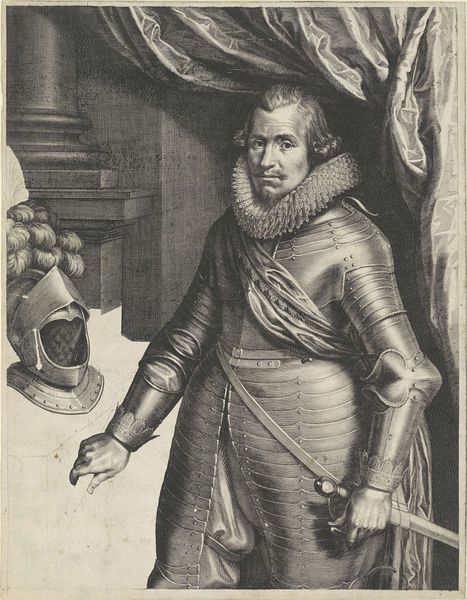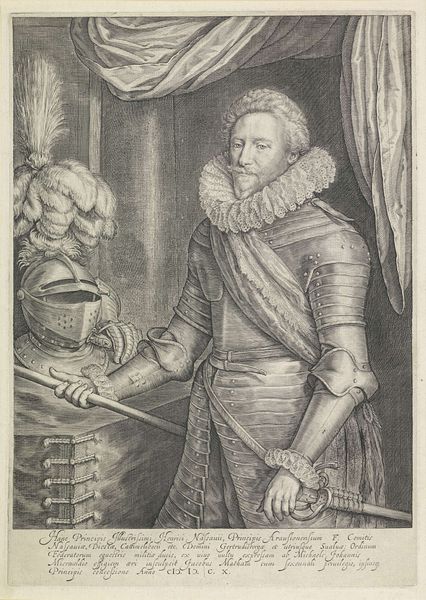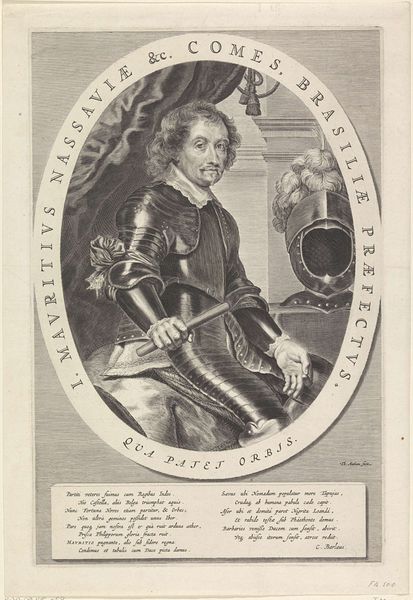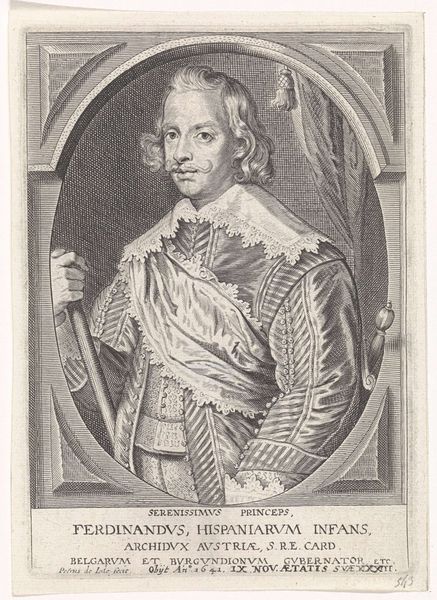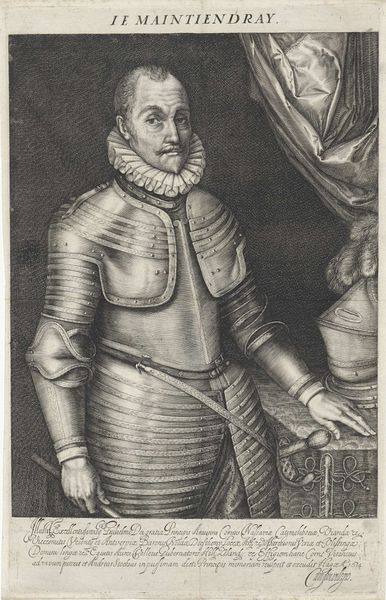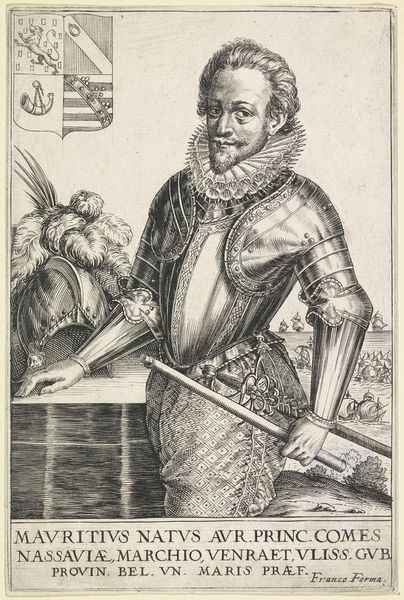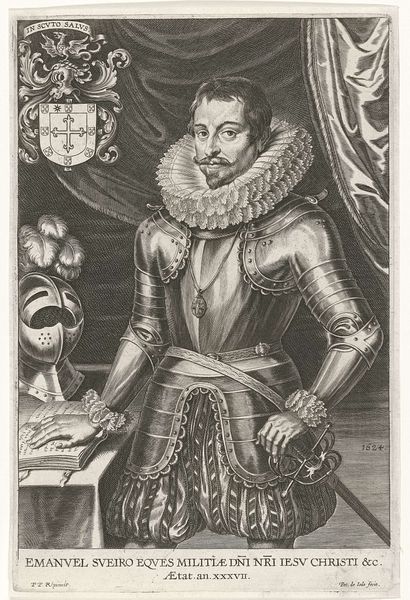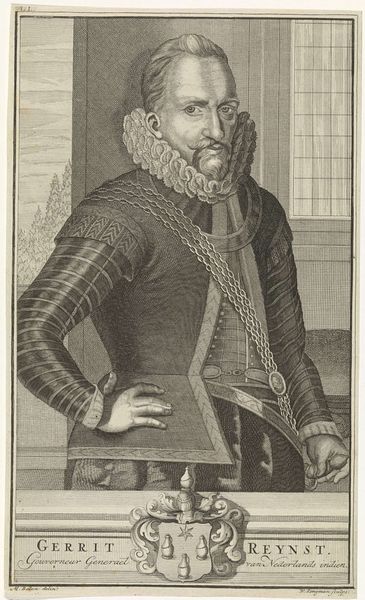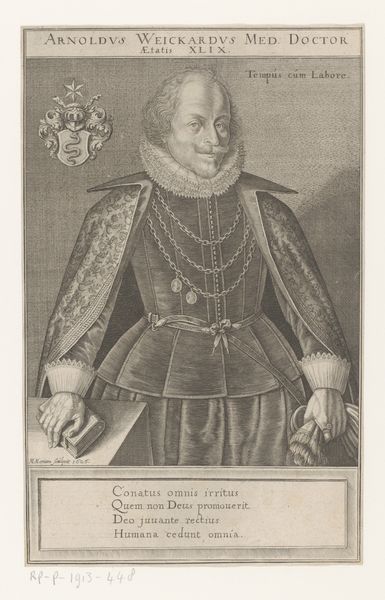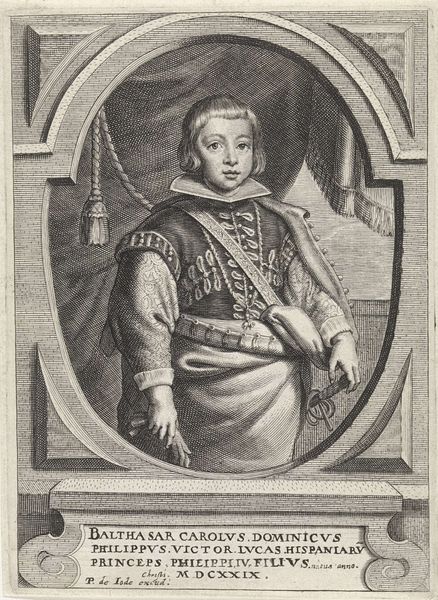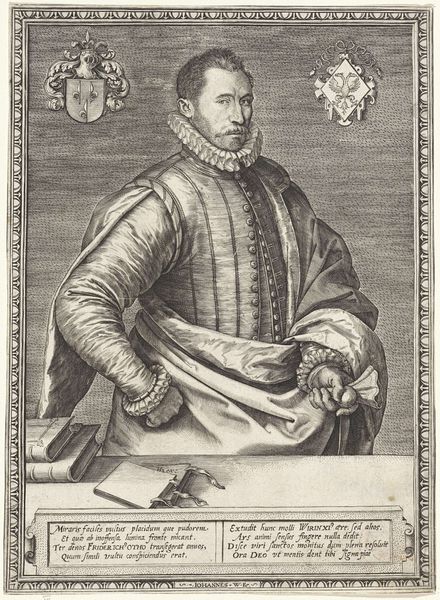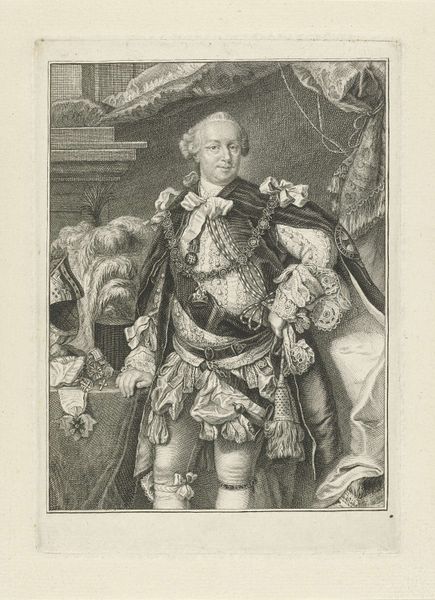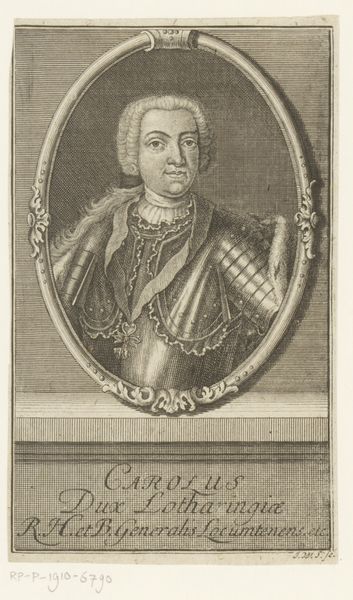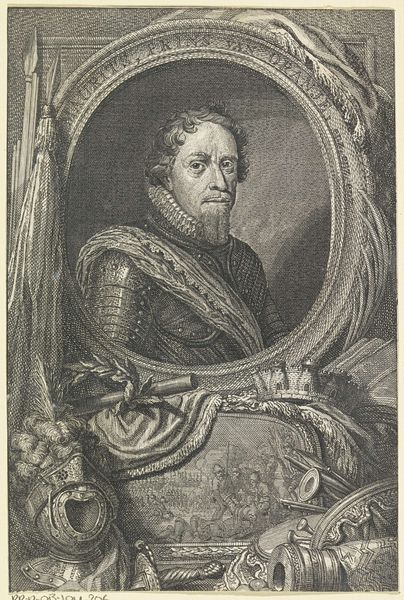
print, engraving
#
portrait
#
baroque
# print
#
history-painting
#
engraving
Dimensions: height 417 mm, width 295 mm
Copyright: Rijks Museum: Open Domain
This portrait of Ernst Casimir, Count of Nassau-Dietz, was made by Willem van Swanenburg. The printmaking process used here – engraving – is crucial to understanding its impact. Engraving is an intaglio process, meaning the image is incised into a metal plate, and then ink is held within those lines. The act of engraving demands intense labor. The artist carefully carves lines into the metal, controlling depth and thickness to create variations in tone. It’s slow, painstaking work, requiring great skill and precision. Consider the way Swanenburg has used this linear language to describe Ernst Casimir's armor. The reflective quality of the metal is captured through dense clusters of fine lines, a testament to both the engraver’s technical ability, and the armor-maker’s craft. In its own way, this print mirrors the social function of armor itself: to make a powerful statement about wealth and status. By focusing on these processes, we can appreciate how printmaking was not just a reproductive medium, but a powerful tool in the construction of identity.
Comments
No comments
Be the first to comment and join the conversation on the ultimate creative platform.
